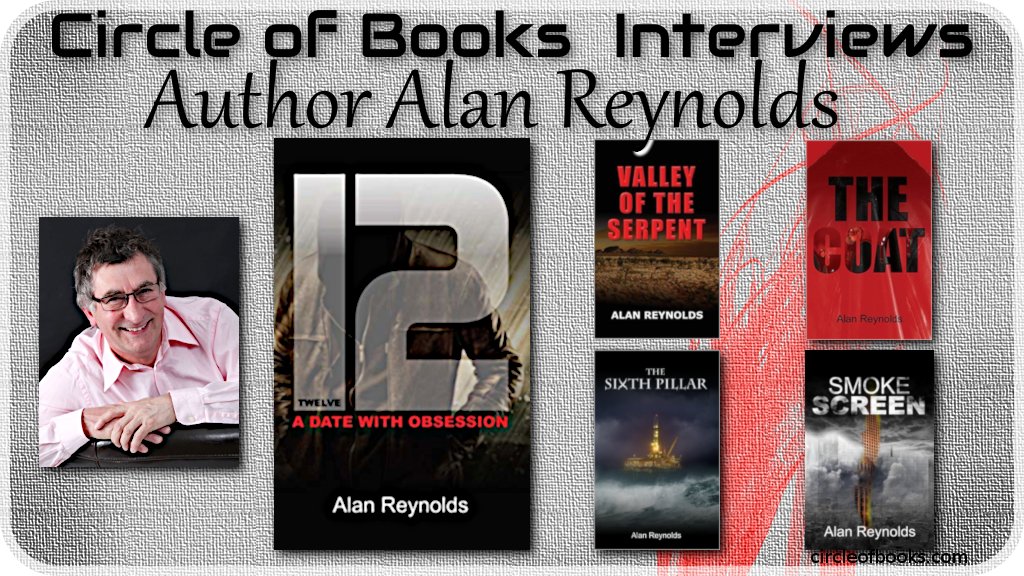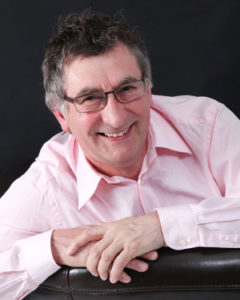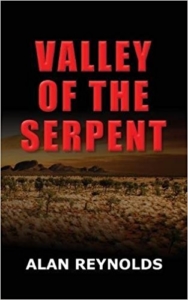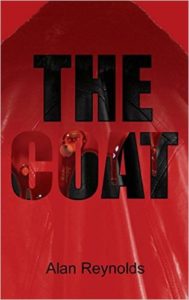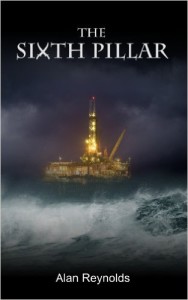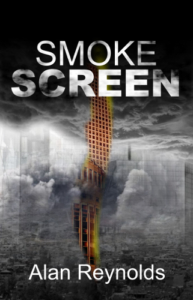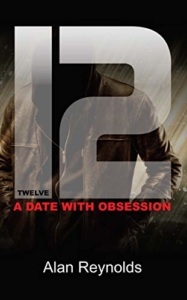Interview – Alan Reynolds
– When did you start writing novels, what moved you to start writing?
I started writing in January 2010. I had never previously had any ambitions of being a writer, but I had this idea in my head and I wanted to put it down on paper. Three weeks later, Flying with Kites was completed. The feedback I received gave me the momentum to continue writing. Finding a publisher was the next challenge and that can be a huge demotivator, dealing with the rejection letters. However I eventually did find a publisher (I had finished another two books in the interim) and Flying with Kites was published in August 2011. It won a prestigious award in 2013.
– In what genres do you write? Do you plan writing in other genres?
All my books are thrillers, either action or psychological. Those genres interest me most because they open a range of possible situations where I can let my imagination run wild. Over the years I have enjoyed reading Andy McNabb and Chris Ryan who are my benchmarks for action thrillers. I was flattered to have ‘The Sixth Pillar’ compared favourably to those writers. I have always had an interest in psychology and have studied behaviour patterns. It’s what I do in my ‘day job’. I cannot see me writing romance/chic lit; but comedy certainly appeals. Flying with Kites has a lot of humour in it to balance the tragedy surrounding th lead characters. My sole purpose in writing is to entertain my readers.
– Tell us about your books. Why should everyone buy them?
‘Twelve – a Date with Obsession’ is my latest and ninth book to be published. It’s about an ambitious professional lady who decides to try online dating to find her soul-mate but ends up with the date from hell. It has just been released on Kindle and will be available in paperback at the end of November. Those who have read it consider it to be one of my best works and is certainly in tune with today’s challenges of the internet and social media.
Flying with Kites – my first novel and winner of a Wishing Shelf Award, it has 36 five-star reviews. It’s about a Kosovan mother escaping with her baby son from war-torn Kosovo in 1999. She is eventually sent to the UK and housed in a tower block in Newcastle. It follows the new challenges she faces in her adopted country. The book has had many plaudits and has recently been adapted for the screen.
Taskers End – my second novel to be published but my fourth to be written, is a tense psychological thriller. It’s about a convicted schizophrenic who is rehabilitating in a secure mental unit having killed a friend in a violent frenzy. The question being debated in the first chapter is whether he is suitably ‘cured’ and ready to be released under the ‘care in the community’ programme. He was formerly a forensic science graduate and when he is eventually released, he discovers his beloved grandparents who had raised him from an early age have died in a mysterious fire. He starts his own investigation with devastating results. 18 five-star reviews – ‘a cracking read’ is the general theme.
Breaking the Bank – I spent my career in banking and was witness to some of the more extreme management behaviours of the 1990’s which led directly to the ‘miss-selling’ cases which still are being addressed today. Much of the story is based on first-hand accounts but it has been fictionalised into a fast-moving drama based around the life of an under-pressure bank manager. ‘A two-night read; if you can stand the overnight suspense’ was one of many excellent reviews.
The Sixth Pillar – My first ‘action’ thriller and inspired by some of the many visits I made to an off-shore gas rig about ten years ago. It follows the journey of a young Iraqi, traumatised during the First Gulf War and his quest for revenge and Jihad. I did significant research around the topic and the brainwashing of vulnerable minds into carrying out atrocities. ‘A gripping thriller’ is one of the many five-star reviews for this book. A finalist in the 2014 Wishing Shelf award.
The Tinker – Set in the beautiful tranquil Cotswolds and the picturesque village of Drayburn the story revolves around Michael, the mysterious itinerant worker who visits every summer to do odd jobs across the summer. The book is set in 1986 which is his sixth visit and this year it is different as his back-story starts to unravel. A story full of twists and turns. It’s another ‘gripping thriller’ with twenty two five-star reviews
The Coat – Tackles the difficult topic of people-trafficking. Keith Woodley, struggling coach-firm owner, thinks his luck has changed when he discovers a left-luggage locker key in the pocket of a coat which his wife has inadvertently mistaken for her own. Keith manages to track down the locker but when he tries to open it a nasty surprise is waiting for him. Will he ever break free from the clutches of the evil gang to whom he is now indebted? ‘Simply the best thriller I have ever read’ was the feedback from a book-club manager.
Valley of the Serpent – Harry is a young geology graduate who is headhunted by a secretive Mining company. It is not long before he finds that their methods of working are ruthless and incompatible with his own values. What will he do when he is sent to the Northern Territories of Australia to prospect for Uranium? What dangers await him. Another fast-moving thriller and Wishing Shelf Award finalist 2017.
Smokescreen – The sequel to The Sixth Pillar sees Rory Calderwood, former SAS officer trying to build a new future. After an act of bravery, he is hired as a consultant for a weapons manufacturer tasked with the objective of tightening security and preventing industrial espionage. The company’s new project is a game-changer in weaponry and many governments and rogue elements would pay a great deal of money to learn of its secrets. Is the new lawyer really what she seems? ‘Action-packed from end to end’, one of the five-star reviews.
– What is your all-time favorite historical fiction novel? What makes it special?
That is a very hard question to answer. I love Michael Dobbs’ Churchill books and also John Grisham, but if I had to choose one it would either be ‘Flood’ by Richard Doyle, which was made into a film starring David Suchet, Robert Carlyle and Tom Courtney; or ‘Pompeii’ by Robert Harris. Both books have gripping story lines and show a great deal of research. I am a sucker for disaster movies which is why ‘The Flood’ resonates. The way in which Harris combines fact with fiction is masterful – very hard to choose between them.
– Tell us a bit about your writing process.
The way I write has changed from when I wrote Flying with Kites which was just like writing a long essay. Today, I keep a record of characters on a separate file which enables me to easily refer to them ensuring I don’t accidently change hair colour or other features. For plot structuring I use mind-maps which allows me to keep track of the big picture. Research takes a great deal of time and I save articles and snippets of information which I can use to give colour to the story to try to make the scenes as realistic as possible. I write chapter by chapter and try to make each a mini-story to keep the pace going. Once completed there are several editing run-throughs before I submit it to my editor/proof-reader. I would normally send the publisher three chapters at a time to get feedback.
What author would you love to have dinner with?
Probably Robert Harris or Michael Dobbs.
– Tell us about your hobbies and passions other than writing.
I love music and have played the guitar for many years; I enjoy watching sport, particularly football and cricket and play golf occasionally. I am a keen photographer.
– We have many followers who would like to start writing a book or are already writing their first novel, any advice for these brave people?
Yes, don’t be afraid to accept advice or criticism. I was asked to preview a draft of a book for someone and she was most offended when I told her I didn’t think the ending worked! We get extremely protective about our literary prowess.
Set your expectations. There are over 90,000 books published world-wide every week. Getting a book published and then having some success takes luck combined with great marketing!
Be prepared for disappointments – your first rejection letter from an agent hurts, it becomes a personal affront; after the fortieth you become downright dis-heartened. Your book might not be as good as you (or your mum!) thought. But keep persevering.
– How often do you write, daily, every other day or?
This varies on my other commitments; but to be productive I really need to be in ‘the zone’, then I am usually very focused. I tend to do most of the writing in the morning and late afternoon/evening. I will write every day when I am on a roll. When writing Flying with Kites, I remember writing 5000 words between two o’clock and eleven with a break for dinner! That was exceptional, and I don’t usually tend to be that productive.
– Do you keep a notebook with ideas for your novels? If so do you carry the notebook with you so you won’t forget any ideas?
When I’m writing I do keep notes; I tend to be creative when I go to bed or even in the middle of the night when I sometimes map out the next chapter or possible plot-lines. I have woken up and written half a chapter at 2.30 in the morning. I don’t tend to carry my notes around with me unless I am staying in a hotel.
– How important is it to have your facts right and are there any instances when you bend history to fit your story?
I am a stickler for accuracy, the novel loses credibility if there are factual inaccuracies; it shows sloppy research and with the internet there are no excuses. In ‘The Sixth Pillar’ for instance I refer to ‘fast-cats’ – the craft the S.B.S. use on missions. My research revealed that the construction material of these vessels is actually classified! I remember trying to find out what tractors the farmers in Kosovo were using in 1999 (which I used in Flying with Kites). As another example, I will describe stations (Lucerne in Valley of the Serpent); airports (San Jose in Twelve) I will examine pictures and try to describe them in such a way my readers can visualise them. I spend a lot of time studying maps and local flora and fauna particularly if the plot is set in a foreign country. I also write from personal experiences when I can.
– What are you reading at the moment?
‘Arnhem’ by Anthony Beevor. He is a brilliant writer of military history; his research is a lesson to all writers.
– How is it to be an author in your country? Do you have a good support from the local public?
There is a thriving reading community in the UK and generally they are happy to give new and emerging writers a chance. There are many literary festivals across the country, although being able to present to them is a challenge unless you are an established author.
Getting published is hard and, from my own experience, some (particularly London) agents have an arrogance about them which is not worthy of the profession. They appear to have little empathy with or time for new writers.
The biggest support comes from on-line book clubs and social media. The local Tesco has now stopped book-signing sessions!
– Have you had any interesting episodes as an author, fans related or others, share one of them with us.
My most thrilling experience was being invited by the Albanian Ambassador to talk to the Kosovan community in London at the British Museum and then a couple of months later being invited by the Kosovan Ambassador to the Houses of Parliament to help celebrate their Independence Day; truly memorable and humbling experiences. It made me realise the impact that writing a book can have on other people.
– A final message for our circleofbooks.com readers.
To the readers I would ask for some kindness when reviewing someone’s work; a considerable amount of time and energy has been invested into completing the book and not every one will be a literary masterpiece; try to be constructive to help the author; by all means be honest, but not brutally honest.
To budding writers – never give up on your dream and keep honing your craft; learn from mistakes and accept feedback as part of the learning process.
Thank you Alan Reynolds. We at circleofbooks.com wish you much success!
Click here to visit the author’s page here on circleofbooks.com
Tweet
